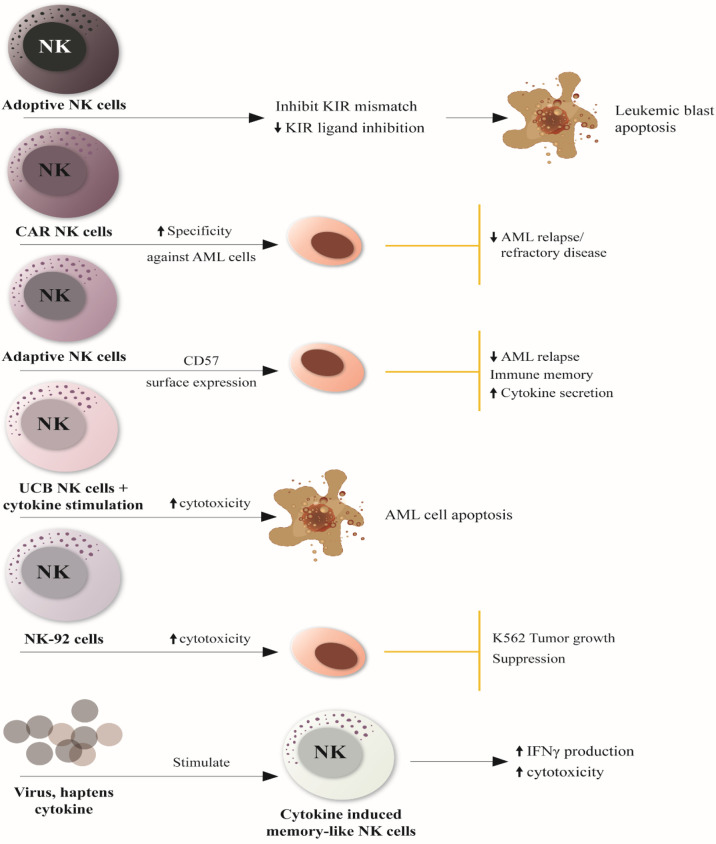Figure 2.
Novel and Improved NK cell-based therapies for AML treatment. 1. Adoptive NK cells can induce leukemic blast apoptosis by inhibiting KIR mismatch and downmodulating KIR ligand inhibitor. 2. CAR NK cells can reduce AML relapse and refractory disease by increasing NK cell specificity against antigens expressed on tumor cells 3. Adaptive NK cells restore immune memory and reduce the relapse of AML through the surface expression of the maturation marker CD57 and the activating receptor NKG2C, resulting in enhanced cytokine secretion. 4. UCB NK cells have increased cytotoxicity against AML cells when stimulated by cytokine activity, promoting cancer cell apoptosis. 5. Irradicated NK-92 cells (NK cell lines) induce tumor growth suppression through increased cytotoxic activity. 6. Various viruses, haptens and cytokines can stimulate innate memory or memory-like responses ‘cytokine-induced memory-like NK cells,” enhancing interferon-γ production and cytotoxicity against leukemia cell lines or primary human AML blasts in vitro. NK, natural killer; KIR, killer Ig-like receptor; CAR, chimeric antigen receptor; CD57, cluster of differentiation 57; UCB-NK cell, umbilical cord blood-Natural killer cells; IFN-γ, interferon-gamma.

